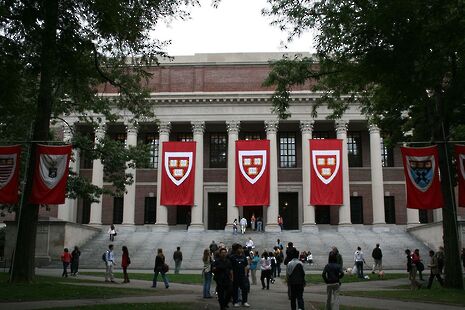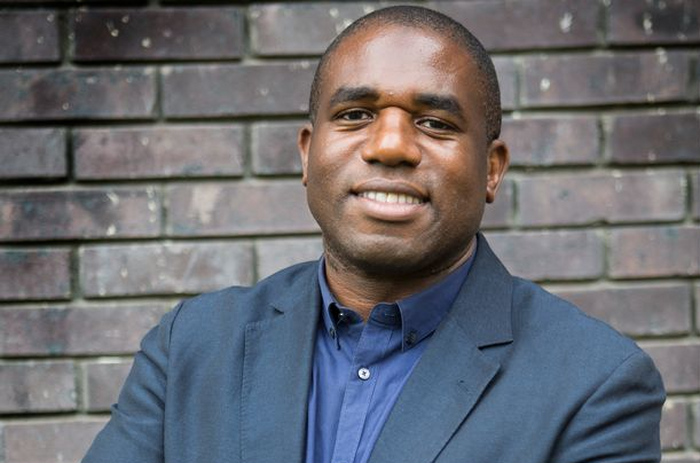Our American peers are better prepared for the changing world
Witnessing Harvard’s thriving entrepreneurial and skilled community made me realise that we’re lagging behind, says Alex Paturel

It was the decision to answer an oddly inconspicuous email in Michaelmas of last year that led the four of us to sign up to the Jesus-Harvard exchange programme. On the 1st of September, plane on the runway of Boston Logan International Airport, it is fair to say we were wide-eyed at the thought of dorms in redbrick, H baseball caps and shirts, and meeting Boston’s best and brightest. That night, we went to a place the students called Nocchi’s (short for Pinocchio’s) – a pizza joint whose nearest equivalent would probably be Gardies. Blue-framed pictures and posters of Mark Zuckerberg crowded the white walls.
One bizarre difference with Cambridge was that many wore shirts and jumpers with the code numbers of the classes they were taking (the equivalent of someone wearing a ‘POL4’ round-neck). In particular, the code CS50 – an introductory class to computer science – was one we kept seeing. But we quickly noted that there was more to it than just what they were wearing.
“A friend of mine at MIT jested that even his ‘career-oriented’ friends in London were stuck in a time-lag, only concerned with opportunities in the financial sector”
I knew that Harvard life revolved around the extra-curricular: so much was revealed by their application process. But what I hadn’t anticipated was how this translated itself into an entrepreneurialism that I hadn’t seen before. Students of all disciplines took an interest in computer coding classes. And even students I met at the Rhode Island School of Design – who were majoring in graphic design, shoe design and interior architecture – talked to me about the importance of taking hold of the digital imperative. Far from setting themselves up for a bohemian lifestyle, these arts students seemed fully committed to serious and engaged careers. And from the number I met who were either active in online selling, website production, or applying to graduate schemes for Facebook and Instagram, I could sense the students of Harvard thought they knew where the economy was headed.
I couldn’t help but think of the stark contrast with Cambridge life. The most forward-thinking I myself had been was in worrying about the weekly essays. I didn’t know where the economy was heading, and what implications it could have on the price of different skills in the job market. And I certainly didn’t know how to code. I suspect a lot of students at Cambridge do think about these things, and can code.
But I would also suspect that those students tend to be from certain triposes, or perhaps a more particular type of person. In any case, I’ve rarely heard much about the importance of computer and coding-based skills outside of the musings of people in the “startup” scene. Cambridge students with valuable skills outside of the career orthodoxy – students who can contribute meaningfully to the creative, intellectual and technological industries – are much less common, and more restricted from doing these things relative to their peers around the world.
As a result, too many Cambridge students are narrowing their vision of the job market from the outset. A good friend of mine at MIT jested that even his ‘career-oriented’ friends in London were stuck in a time-lag, thinking that the future of British jobs still revolved around a narrow band of opportunities in the financial sector. Yet the advent of new forms of technology mean that this is increasingly less likely to be so. Indeed, on the first day of a summer vacation scheme at a law-firm this summer, I myself was given a presentation on how artificial intelligence would mean that the firm would be looking to cut-down on its legal personnel.
Cambridge needs to develop an entrepreneurial culture which is diverse enough to include the breadth of its talents – creative, commercial, and otherwise. The delay in such a culture becoming mainstream can only be at its students’ severe disadvantage as they grapple with a changing job market.
Although British students ought to learn from their American counterparts, the story is also, of course, more complicated. I think that the career-focused, forward-looking attitudes I saw in Harvard came at the price of a certain warmth in the student community. I sometimes got the sense, in the introduction-cum-CV-briefings or the disconcerting looks that perch over your shoulder, that perhaps a product of this entrepreneurialism was a lack of sociability that was slightly disheartening.
But maybe being clued up and living your life as though you’re stuck in LinkedIn do not to have to come hand-in-hand. The task for British students is to inform themselves on developments in the contemporary economy and equip themselves with the necessary skills so as to broaden their options coming out of university, but to do so without the kind of perpetual ‘networking’ that such an attitude could encourage. And this is completely within our reach
 Interviews / You don’t need to peak at Cambridge, says Robin Harding31 December 2025
Interviews / You don’t need to peak at Cambridge, says Robin Harding31 December 2025 News / Downing investigates ‘mysterious’ underground burial vault 29 December 2025
News / Downing investigates ‘mysterious’ underground burial vault 29 December 2025 News / Unions protest handling of redundancies at Epidemiology Unit30 December 2025
News / Unions protest handling of redundancies at Epidemiology Unit30 December 2025 Lifestyle / Ask Auntie Alice29 December 2025
Lifestyle / Ask Auntie Alice29 December 2025 Features / ‘Treated like we’re incompetent’: ents officers on college micromanagement30 December 2025
Features / ‘Treated like we’re incompetent’: ents officers on college micromanagement30 December 2025









